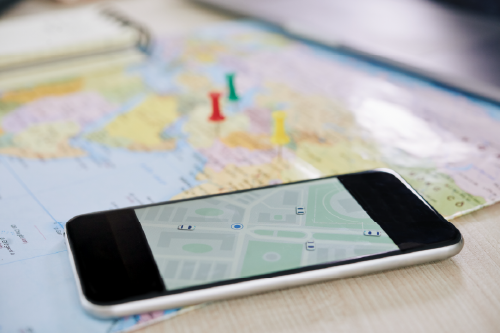Can a VPN Help with Location-Based Apps and Services?

Can a VPN Help with Location-Based Apps and Services?
Location-based apps and services rely heavily on your geographic location to deliver relevant content or functionality. Apps like Google Maps, Uber, food delivery services, and even banking apps use your location to provide personalized services. But there are times when your location might prevent you from accessing certain services, such as streaming content, or when you want to hide your true location for privacy reasons. In such cases, a VPN can help by masking your real location and providing access to location-based services from other regions.
How Do Location-Based Services Work?
Location-based services (LBS) use various methods to determine your location. The most common way is by tracking your IP address, which gives a rough estimate of your geographic location. Some apps use GPS data to pinpoint your exact location, while others rely on Wi-Fi signals or mobile network towers. These services can then tailor their offerings based on where you are.
For example, if you’re in a certain city, your food delivery app will show you restaurants nearby. If you're using a streaming service, it will only show you content that’s available in your country or region. While this can be convenient, it can also be restrictive. You may not be able to access certain apps or content when traveling abroad, and in some cases, you might want to hide your location for privacy or security reasons.
How Can a VPN Help with Location-Based Services?
A VPN helps by masking your true IP address and assigning you a new one from a server in a different location. By connecting to a VPN server in another country, you can trick location-based apps into thinking you’re in that region. This can be useful in several scenarios:
- Access geo-restricted content: Some apps and streaming services are only available in certain regions. For example, Netflix or Hulu might offer different shows and movies depending on where you’re located. By using a VPN, you can access content libraries from other countries by connecting to a server in that location.
- Use location-sensitive apps while traveling: If you're abroad and need to use apps like mobile banking, a VPN can make it look like you're still in your home country, allowing you to access services that might otherwise be blocked.
- Bypass censorship: In some countries, access to certain apps or websites is restricted. A VPN can help you bypass these blocks by making it appear as though you’re accessing the internet from a country without such restrictions.
- Protect privacy: If you don’t want certain apps or websites to track your location, a VPN can hide your real IP address, giving you more control over your privacy.
Limitations of Using a VPN with Location-Based Apps
While a VPN can change your apparent IP location, it doesn’t always fool every app. Some services, particularly those that rely on GPS data, can still track your physical location even if you’re using a VPN. For example, Google Maps uses GPS signals, which a VPN cannot mask. Similarly, some mobile apps may request permission to access your device’s location services, which can override the VPN's IP masking.
That said, for most web-based services that rely on IP addresses to determine location, a VPN is an effective solution for bypassing geo-restrictions and protecting your privacy.